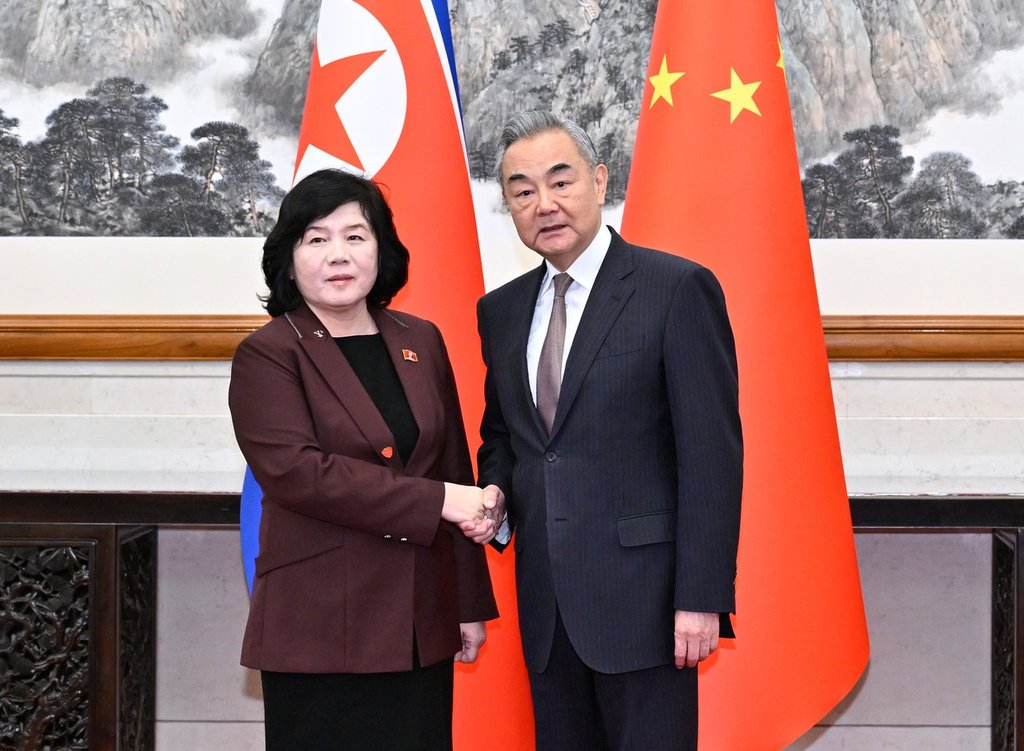SEOUL, South Korea (AP) — The foreign ministers of North Korea and China have agreed to deepen bilateral ties and jointly resist hegemonism and unilateralism, likely signaling their shared stance against the United States.
Their meeting in Beijing on Sunday followed about three weeks after North Korean leader Kim Jong Un and Chinese President Xi Jinping held their first summit in more than six years, during which they pledged mutual support and enhanced cooperation.
Kim and Xi earlier attended a massive military parade in Beijing marking the end of World War II. The event also featured other world leaders, including Russian President Vladimir Putin. The joint appearance of Kim, Xi, and Putin—an unprecedented display—highlighted a potential three-way unity against the United States, although it remains unclear how far China will go in forming such an anti-U.S. alliance.
In the meeting with her Chinese counterpart Wang Yi, North Korean Foreign Minister Choe Son Hui cited Kim as saying that further strengthening ties with China is North Korea’s unwavering position. Choe expressed intent to deepen and develop friendly relations in line with the spirit of the Kim-Xi summit, according to the North Korean Central News Agency (KCNA).
Wang emphasized that China maintains a firm position to solidify bilateral ties, highlighting the necessity of boosting strategic communications and exchanges, KCNA reported.
China’s Xinhua News Agency quoted Wang as stating that China opposes all forms of hegemonism and stands ready to enhance cooperation with North Korea on international and regional affairs. Likewise, Choe expressed North Korea’s willingness to closely cooperate with China in multilateral matters, jointly resist unilateralism and power politics, and promote a fairer and more just world order.
These statements are likely references to the separate confrontations both countries have with the United States—China in its strategic competitions, and North Korea regarding its nuclear weapons program.
KCNA further reported that Choe and Wang exchanged views on regional and international issues and reached a complete consensus, although no additional details were provided.
Kim’s attendance at the Beijing military parade marked his first participation in a major multilateral event during his 14-year rule.
In recent years, North Korea has focused on expanding cooperation with Russia by supplying combat troops and ammunition to support its war effort in Ukraine. However, experts suggest that Kim now feels the need to improve ties with China—North Korea’s largest trading partner and aid benefactor—as he prepares for the eventual end of the war.
China, for its part, reportedly seeks to maintain influence over North Korea, especially as bilateral relations had reportedly cooled in recent years.
Attention is now turning to the delegation China might send to North Korea for the upcoming commemoration of the 80th founding anniversary of North Korea’s ruling Workers’ Party next month. North Korea is expected to mark the anniversary with its own military parade, showcasing new weapons aimed at the United States and its allies.
https://www.winnipegfreepress.com/world/2025/09/28/top-diplomats-of-north-korea-china-agree-to-deepen-ties-and-resist-hegemonism

